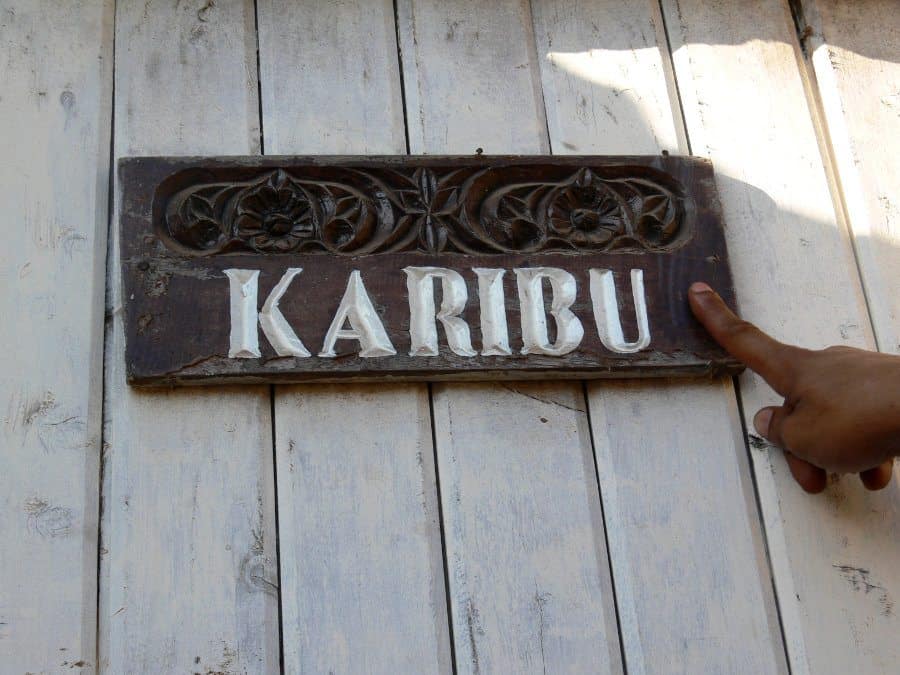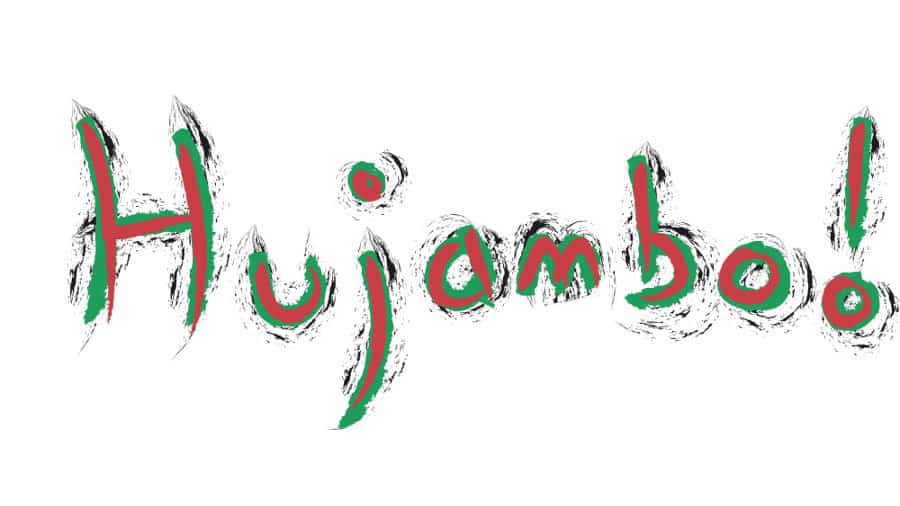Unlike in English where you don’t really have to specify whether you are referring to one person or more than one, in Swahili we go to great pains to do this.
How exactly is it done? You simply add “ni” at the end of the word in question. So before I confuse you any further, here is what I mean:
The Swahili word for ‘welcome’ is “karibu”. Therefore, if you are welcoming one person then this is what you would say.
However, if you are welcoming a bunch of people to, say your home (note: when invited somewhere we have a habit of bringing along the whole family save for the dog, it’s a Swahili thing! -I kid you not!), in this case you would say; “karibuni”.
The “ni” at the end indicates that you are welcoming them all as opposed to just one person (as this might be misinterpreted as you hinting at the sudden increase in numbers!).
Further Examples
Asante (thank you)- asanteni
Njoo (come, as in “come here”)- njooni
Samahani (excuse me/I’m sorry)- samahanini
Tafadhali (please)- tafadhalini
Having said that, there are exceptions to this little rule, as there always are (much to many of my students’ chagrin!).
So, you wouldn’t necessarily add “ni” to every Swahili word you come across and expect it to do the job. But that’s a whole different lesson for another day!
Besides, the five words I’ve used today should pretty much get you through plenty of situations, and for anything else you can simply help yourself to a Swahili-English dictionary or better yet get an interpreter – our educated yet unemployed youth could do with a job or two!
Even More Uses of “Ni” (Referring to Location)
When generally referring to location, we also use this very important suffix. In other words it can be used as a preposition as in:
i) I am going to the market= ninaenda sokoni
ii) I am at the market= nipo sokoni
iii) There are many things inside the market= mna vitu vingi sokoni
etc
And just to finish off on ‘ni’, one last use is as an equivalent of the verb ‘to be’:
i) It is I= ni mimi
i) I am a tourist= mimi ni mtalii
ii) We are students of Swahili= sisi ni wanafunzi wa Kiswahili
When you translate the words in the picture above, they read, “change is me, is you, is us” – powerful message I say!
To wrap up, there are many uses of ‘ni’ so one has to be careful when figuring out exactly what a person means when they use it, or when you want to show off your skills by incorporating it in a sentence.
And with that we are done with the many uses of ‘ni’ and inshallah, I will be back soon with a brand new lesson.
Yours truly,
Fun-Lugha


